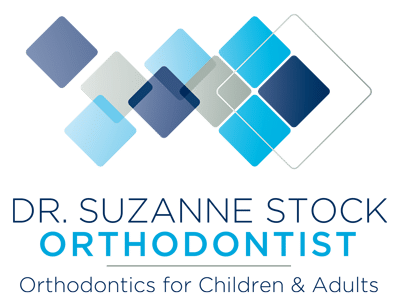Braces are designed to straighten your teeth and align your bite, which can make it easier to clean your teeth when treatment is complete. But while you are wearing braces, it can be more difficult to keep your teeth clean.
Brushing your teeth is as important as ever when you have braces. Braces attract food particles and create places for plaque to gather on the teeth. In order to clean your teeth and braces effectively, it is important to use proper brushing techniques.
Brushing Tools for Braces
In order to effectively brush your teeth with braces, it is necessary to have the proper tools. You will need:
- Standard toothbrush. For the majority of the brushing process you can use a traditional toothbrush. We will provide one for you that has differing lengths of bristles on the brush head.
- Pointed brush. We also provide a brush with a pointed end to reach the smallest places where food and plaque may gather.
Brushing Techniques for Braces
There are some brushing techniques that can help you get more of the food and plaque off your teeth and braces:
- Hold your toothbrush at a 45 degree angle against your top teeth so that the bristles are angled toward your teeth and down under your archwire.
- Move the toothbrush back and forth to brush away plaque that gathers along your gum line and the top brackets.
- Do the same on the bottom row of teeth, continuing with the 45 degree angle toward your teeth.
- Use sweeping strokes downward along your top teeth and upward along your bottom teeth to clean around the brackets.
- Be sure to brush all sides of your teeth, including the tops and backsides as well.
- Use the pointed brushes to clean around your brackets.
- Rinse your mouth out with water after brushing to flush out food particles and plaque.
Other Tools For Cleaning Your Teeth With Braces
In addition to brushes, there are some other tools that can help you clean your teeth more effectively with braces, such as:
- Electric toothbrush. An electric toothbrush can sometimes be more effective for brushing with braces. It provides an even amount of pressure across all surfaces.
- Flossing sticks. There are flossing sticks made with narrow heads that easily fit under your archwire.
- Flossing needles. A needle is a large plastic sewing needle that can be used to thread floss under your archwire for flossing.
- Superfloss. Superfloss has a reinforced end like a shoestring that makes it easier to thread under your archwire.
- Water flosser. A water flosser sprays pressurized water to reach between teeth and to clean your brackets and wires. Please note that water flossing should be done in addition to, not instead of, regular flossing.
Additional Brushing Tips
- Brush after eating and before going to bed.
- Carry a toothbrush with you wherever you go so that you can brush after eating. We will provide a travel toothbrush for you.
- Replace your toothbrush every few months as it will wear out faster and the bristles will become damaged from your braces. Just ask us for free replacements!
Why Choose Dr. Suzanne Stock Orthodontist?
Dr. Stock provides you with the tools you need to keep your teeth clean while you’re wearing braces. We educate patients on proper techniques for brushing and flossing at the start of your treatment and provide support throughout. We also partner with your dentist who will provide routine dental cleanings throughout your orthodontic treatment.
To learn more, contact us today and schedule an appointment.
Frequently Asked Questions About Brushing with Braces
What kind of toothbrush is best for braces?
Most standard toothbrushes are effective for brushing with braces. Look for soft bristles and a round or oval shaped brush head. Electric toothbrushes are also safe to use with braces.
What can happen if you don’t brush well with braces?
When you don’t brush effectively while you have braces, you are at an increased risk of tooth decay and gum disease. If your dental health declines significantly, you may have to get your braces removed and start your treatment over again once your oral health has been restored.

